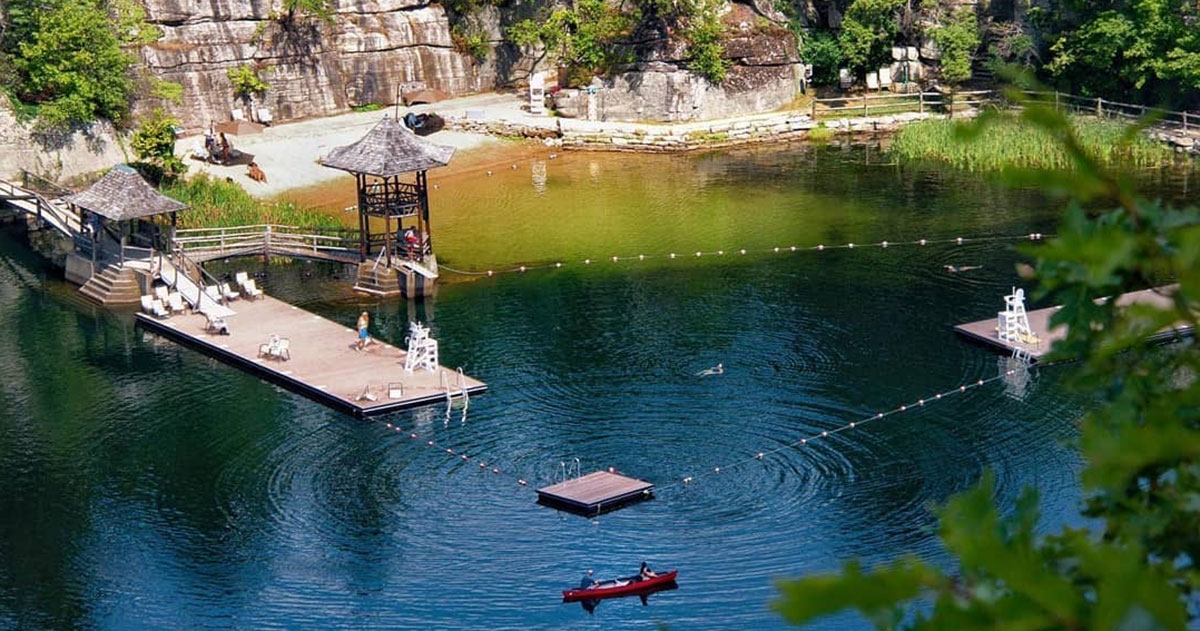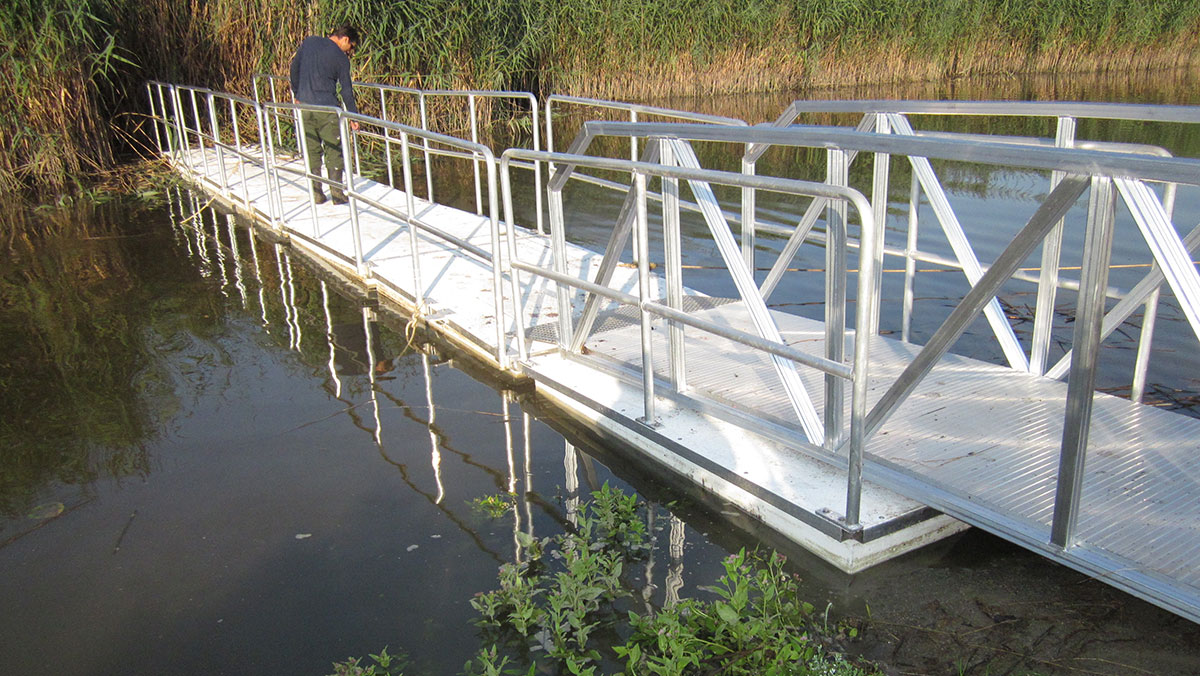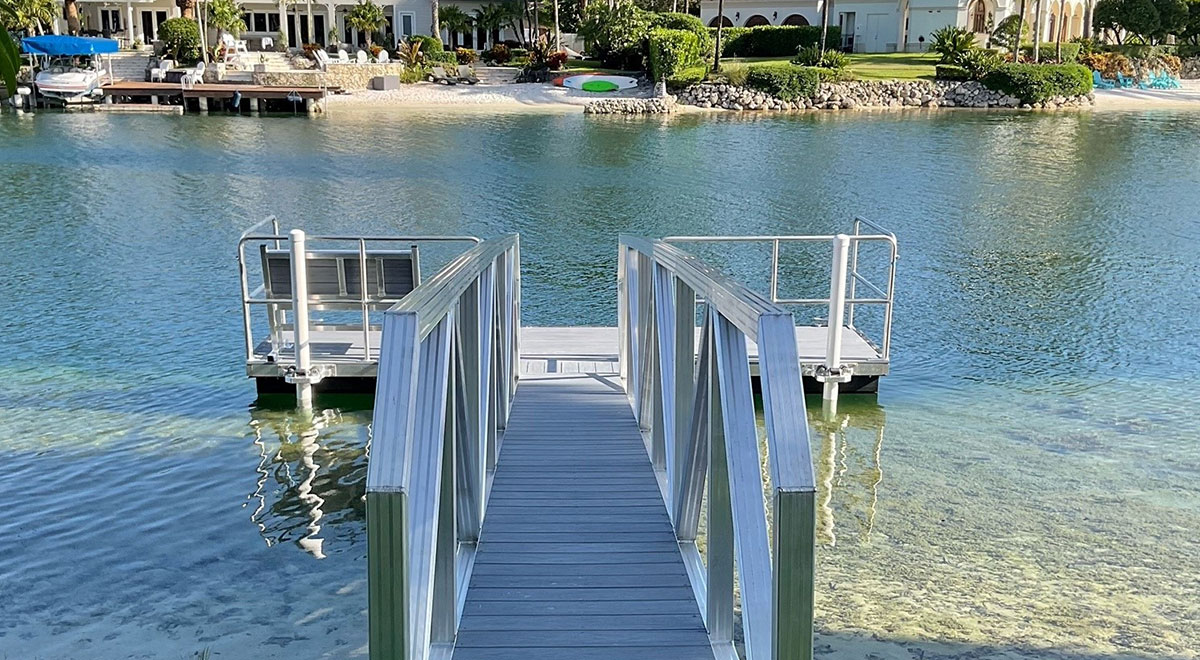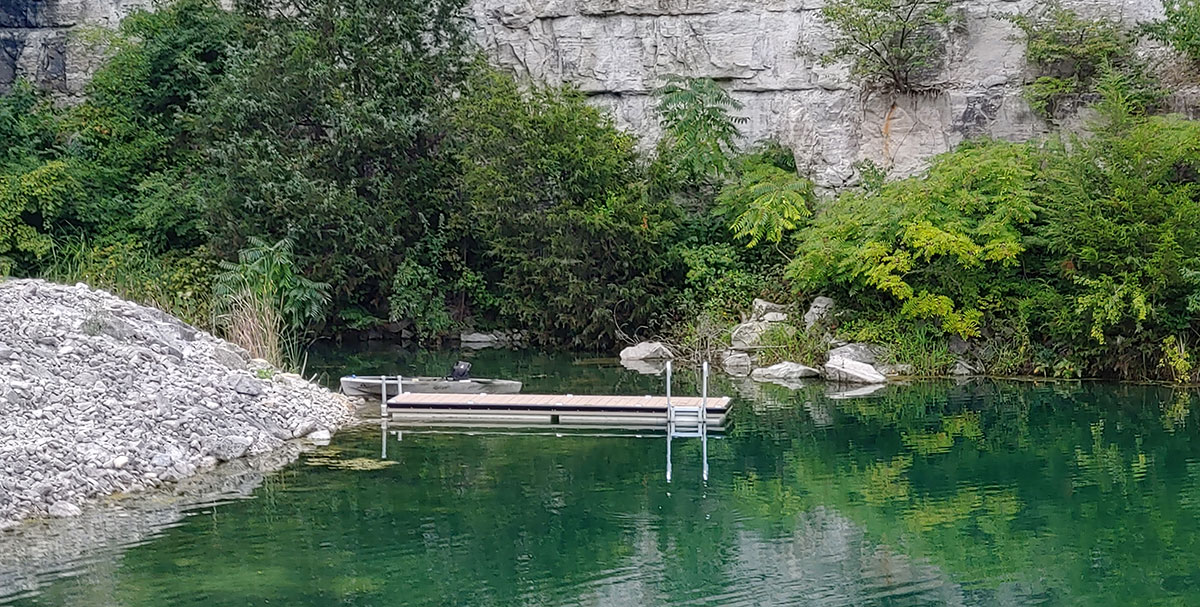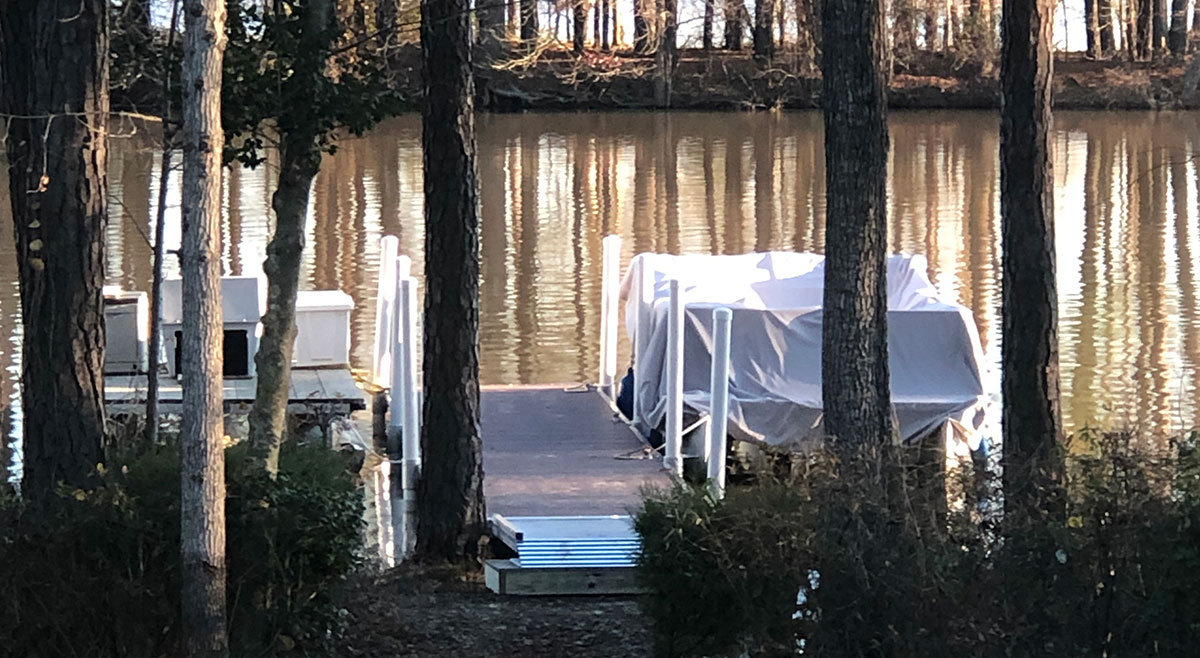
How to Attach a Floating Dock to Shore
Attaching a floating dock to shore is one of the most fundamental steps you take to preserve longevity and ensure it is safe for use. But the process can be tricky; while the dock needs to be securely tethered, it must also have enough flexibility to accommodate vertical and horizontal movements of the water. Here are some how-to’s to help.
Floating Dock Attachment Methods
Without a proper dock anchoring system, floating docks are susceptible to wind, currents, debris, fluctuations in water levels, and storms. The first step is to choose the right attachment method – and AccuDock has many options including:
- Aluminum Floating Dock Piling Hoop Bracket – This attachment method requires two pilings to be pounded into the seafloor. Each piling hoop bracket has pile rollers that should be two inches larger than the piling diameter or width. For example, a 12″ diameter piling or a 12″ x 12″ square piling will require a hoop bracket with 14″ pile rollers. This allows for a one-inch gap around the piling to prevent binding.
- Piling – A piling mount requires you to measure the water level at maximum high tide and at maximum low tide, so you can attach your floating dock to ensure the water level stays below the standing surface of the dock as much as possible.
- Piling Hoop Bracket – Affordable and durable, a piling hoop bracket floating dock attachment method again requires a piling to be pounded into the seafloor. A standard piling hoop bracket has pile rollers that should be two inches larger than the piling diameter. For example, a 12″ diameter piling will get a hoop bracket with 14″ pile rollers, again allowing for a one-inch gap around the piling to prevent binding. This is a good floating dock attachment option for scenarios where slide assemblies aren’t feasible or applicable.
- Piling Slide Assembly – With this incredibly stable attachment method, two pilings must be pounded into the sea floor. The pilings cannot be set wider than the dock width. An inner tube gets fixed to each piling, while an outer tube gets fixed to the floating dock, allowing it to move independently. A cosmetic cover slides over the inner and outer tubes as an aesthetic and protective cover.
- Seawall Slide Assembly – This extremely stable floating dock attachment method is nearly identical to the piling slide assembly method. However, the inner tubes get affixed to the existing seawall vs. pilings.
- Small Slide Assembly – Again, this method is nearly identical to the piling and seawall slide assembly attachment methods. However, the inner tubes get affixed to an existing floating dock vs. pilings or a seawall. This method can be used to attach a low-profile floating dock to another floating dock with a higher profile.
- Control Arm – Used when a floating dock, or most of it, runs parallel to the shoreline, a control arm offers an alternative to driving pilings into the seafloor to achieve optimum stabilization. This method is also good when large water fluctuations are present.
- Upper and Lower Brackets – This method for attaching a floating dock to shore affixes the dock to a seawall using several four-inch SCH 40 PVC pipes, with the bottom of the pipes being pounded into the seafloor. The upper and lower brackets anchoring method is often recommended for use with corrugated and/or graduated seawalls.
- Gangways and Ramps – This method is used when the dock needs to be set away from the shore to reach a specific desired water depth. The gangways and ramps allow the dock to move freely vertically, but they must connect to a fixed abutment.
Please click on the following link for more information about our floating dock attachment methods. If you need help attaching a floating dock to shore, ask the AccuDock team. We are happy to explain the different methods and help you determine which is the best solution for your specific needs. We’ll also make sure the process is quick, simple, and painless!
AccuDock is a global leader in the design and manufacturing of Floating Docks
CALL 954.785.7557 OR EMAIL INFO@ACCUDOCK.COM FOR MORE INFORMATION
